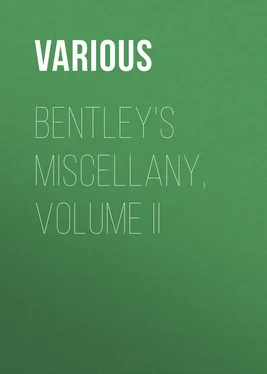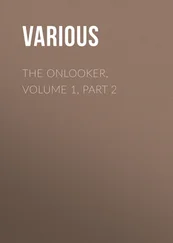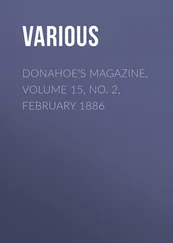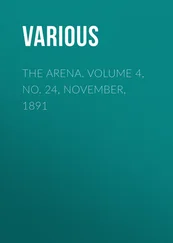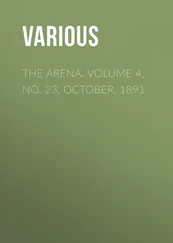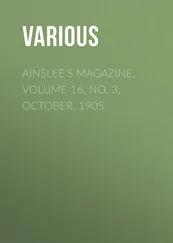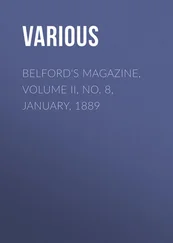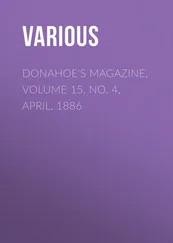Various - Bentley's Miscellany, Volume II
Здесь есть возможность читать онлайн «Various - Bentley's Miscellany, Volume II» — ознакомительный отрывок электронной книги совершенно бесплатно, а после прочтения отрывка купить полную версию. В некоторых случаях можно слушать аудио, скачать через торрент в формате fb2 и присутствует краткое содержание. Издательство: Иностранный паблик, Жанр: foreign_antique, foreign_prose, на английском языке. Описание произведения, (предисловие) а так же отзывы посетителей доступны на портале библиотеки ЛибКат.
- Название:Bentley's Miscellany, Volume II
- Автор:
- Издательство:Иностранный паблик
- Жанр:
- Год:неизвестен
- ISBN:нет данных
- Рейтинг книги:3 / 5. Голосов: 1
-
Избранное:Добавить в избранное
- Отзывы:
-
Ваша оценка:
- 60
- 1
- 2
- 3
- 4
- 5
Bentley's Miscellany, Volume II: краткое содержание, описание и аннотация
Предлагаем к чтению аннотацию, описание, краткое содержание или предисловие (зависит от того, что написал сам автор книги «Bentley's Miscellany, Volume II»). Если вы не нашли необходимую информацию о книге — напишите в комментариях, мы постараемся отыскать её.
Bentley's Miscellany, Volume II — читать онлайн ознакомительный отрывок
Ниже представлен текст книги, разбитый по страницам. Система сохранения места последней прочитанной страницы, позволяет с удобством читать онлайн бесплатно книгу «Bentley's Miscellany, Volume II», без необходимости каждый раз заново искать на чём Вы остановились. Поставьте закладку, и сможете в любой момент перейти на страницу, на которой закончили чтение.
Интервал:
Закладка:
Haste is made a remarkable characteristic of Romeo, – because it is at once the parent and the child of uniform misfortune. As from the acorn springs the oak, and from the oak the acorn, so does the temperament that inclines to haste predispose to misadventure, and a continuance of misadventure confirms the habit of haste. A man whom his rashness has made continually unlucky, is strengthened in the determination to persevere in his rapid movements by the very feeling that the "run" is against him, and that it is of no use to think. In the case of Romeo, he leaves it all to the steerage of Heaven, i. e. to the heady current of his own passions; and he succeeds accordingly. All through the play care is taken to show his impatience. The very first word he speaks indicates that he is anxious for the quick passage of time.
" Ben. Good morrow, cousin.
Rom. Is the day so young?
Ben. But new struck nine.
Rom. Ay me, sad hours seem long."
The same impatience marks his speech in the moment of death:
"O true apothecary,
Thy drugs are quick!"
From his first words to his last the feeling is the same. The lady of his love, even in the full swell of her awakened affections, cannot avoid remarking that his contract is
"Too rash, too unadvised, too sudden,
Too like the lightning, which does cease to be
Ere one can say, It lightens."
When he urges his marriage on the friar,
" Rom. O let us home: I stand on sudden haste.
Friar. Wisely and slow. They stumble that run fast."
The metaphors put into his mouth are remarkable for their allusions to abrupt and violent haste. He wishes that he may die
"As violently as hasty powder fired
Doth hurry from the fatal cannon's womb."
When he thinks that Juliet mentions his name in anger, it is
"as if that name,
Shot from the deadly level of a gun,
Did murder her."
When Lawrence remonstrates with him on his violence, he compares the use to which he puts his wit to
and tells him that
"Violent delights have violent ends,
And in their triumph die; like fire and powder,
Which, as they kiss, consume."
Lightning, flame, shot, explosion, are the favourite parallels to the conduct and career of Romeo. Swift are his loves; as swift to enter his thought, the mischief which ends them for ever. Rapid have been all the pulsations of his life; as rapid, the determination which decides that they shall beat no more.
A gentleman he was in heart and soul. All his habitual companions love him: Benvolio and Mercutio, who represent the young gentlemen of his house, are ready to peril their lives, and to strain all their energies, serious or gay, in his service. His father is filled with an anxiety on his account so delicate, that he will not venture to interfere with his son's private sorrows, while he desires to discover their source, and if possible to relieve them. The heart of his mother bursts in his calamity; the head of the rival house bestows upon him the warmest panegyrics; the tutor of his youth sacrifices everything to gratify his wishes; his servant, though no man is a hero to his valet de chambre , dares not remonstrate with him on his intentions, even when they are avowed to be savage-wild,
"More fierce, and more inexorable far,
Than empty tigers or the roaring sea," —
but with an eager solicitude he breaks his commands by remaining as close as he can venture, to watch over his safety. Kind is he to all. He wins the heart of the romantic Juliet by his tender gallantry: the worldly-minded nurse praises him for being as gentle as a lamb. When it is necessary or natural that the Prince or Lady Montague should speak harshly of him, it is done in his absence. No words of anger or reproach are addressed to his ears save by Tybalt; and from him they are in some sort a compliment, as signifying that the self-chosen prize-fighter of the opposing party deems Romeo the worthiest antagonist of his blade. We find that he fights two blood-stained duels, but both are forced upon him; the first under circumstances impossible of avoidance, the last after the humblest supplications to be excused.
"O begone!
By Heaven, I love thee better than myself,
For I came hither armed against myself.
Stay not; begone! – live, and hereafter say
A madman's mercy bade thee run away."
With all the qualities and emotions which can inspire affection and esteem, – with all the advantages that birth, heaven, and earth could at once confer, – with the most honourable feelings and the kindliest intentions, – he is eminently an unlucky man. The record of his actions in the play before us does not extend to the period of a week; but we feel that there is no dramatic straining to shorten their course. Everything occurs naturally and probably. It was his concluding week; but it tells us all his life. Fortune was against him; and would have been against him, no matter what might have been his pursuit. He was born to win battles, but to lose campaigns. If we desired to moralize with the harsh-minded satirist, who never can be suspected of romance, we should join with him in extracting as a moral from the play and attribute the mishaps of Romeo, not to want of fortune, but of prudence. Philosophy and poetry differ not in essentials, and the stern censure of Juvenal is just. But still, when looking on the timeless tomb of Romeo, and contemplating the short and sad career through which he ran, we cannot help recollecting his mourning words over his dying friend, and suggest as an inscription over the monument of the luckless gentleman,
"Nullum habes numen, si sit prudentia; sed te
Nos facimus, Fortuna, deam, cœloquê locamus;"
THE PIPER'S PROGRESS
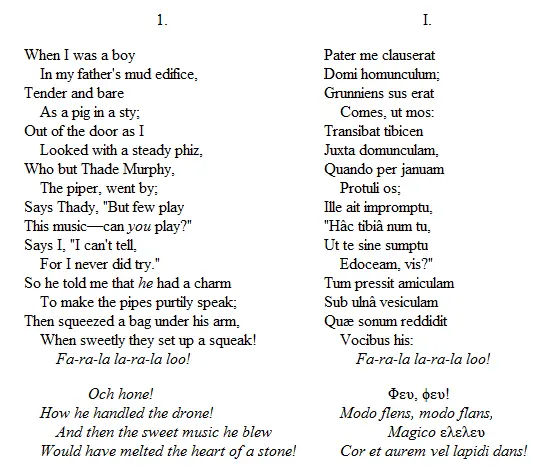
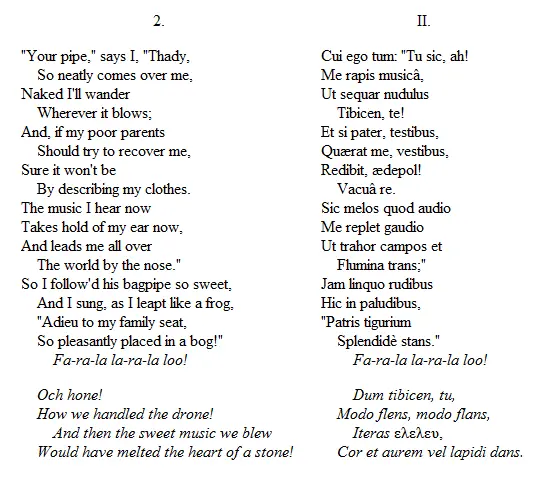
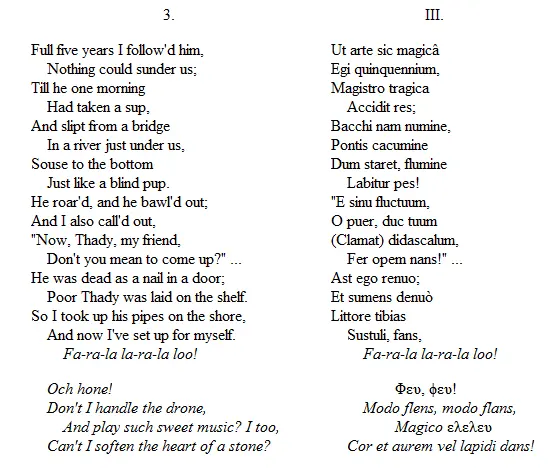
DARBY THE SWIFT;
OR,
THE LONGEST WAY ROUND IS THE SHORTEST WAY HOME
The Sunday after Darby lingeringly started, I began to think it would be just as well to make "assurance doubly sure;" so I despatched a letter by post to my friend at Bally – , conveying similar instructions and advice to those contained in that entrusted to " the running footman " of my establishment. In three days I received a satisfactory answer, so I was at rest upon that point; but, as to Darby, I was quite at a loss. I turned over and over in my mind the various mishaps that might have befallen him by the way; but all to no purpose. I called up Eileen, and asked her what she thought about it. Her replies, mixed up, as they were, with her wild immoderate laughter, afforded me nothing beyond a sympathy with her mirth, which certainly was most infective. Reader, I am not a portrait-painter; but, nevertheless, I will attempt to give you an outline of Eileen. In the first place, she was a poor girl, (else she would not have been my servant,) born of honest parents; but, if fate had placed her in a higher sphere, she had natural accomplishments enough to have graced it, – namely, youth, beauty, and health, – and, beyond these, an intellectual, though uneducated, refinement of thought, when, by chance , she was serious; for gaiety seemed to be an indispensable element of her being. She was eighteen years of age, – well, what do I say? – beautifully formed, had eyes like violets, cheeks like roses, hair, when it was dishevelled (despite Goldsmith's satire), like a weeping willow in a sunset, and – but, hold! I must not go further, lest I be suspected of being enamoured of the original; so I will give up the remaining parts of the picture, and leave them to your imagination!
Читать дальшеИнтервал:
Закладка:
Похожие книги на «Bentley's Miscellany, Volume II»
Представляем Вашему вниманию похожие книги на «Bentley's Miscellany, Volume II» списком для выбора. Мы отобрали схожую по названию и смыслу литературу в надежде предоставить читателям больше вариантов отыскать новые, интересные, ещё непрочитанные произведения.
Обсуждение, отзывы о книге «Bentley's Miscellany, Volume II» и просто собственные мнения читателей. Оставьте ваши комментарии, напишите, что Вы думаете о произведении, его смысле или главных героях. Укажите что конкретно понравилось, а что нет, и почему Вы так считаете.
